Introduction: The Enneagram – A Powerful Tool for Understanding and Managing Stress
Stress is an inherent part of modern life, whether at work, at home, or in our relationships. However, the way we respond to stress varies greatly from one person to another. This is where the Enneagram, a personality model that categorizes individuals into nine distinct types, can serve as a valuable tool for understanding how each of us manages pressure.
The Enneagram goes beyond merely categorizing personalities; it delves into the core motivations, fears, and behavioral patterns that influence how we handle stress. By understanding your Enneagram type, you can identify your stress triggers and discover personalized strategies to manage it more effectively.
In this article, we will explore how each Enneagram personality type reacts to stress and how you can use this knowledge to better manage pressure in your daily life.
Understanding Stress Through the Lens of the Enneagram
What is the Enneagram?
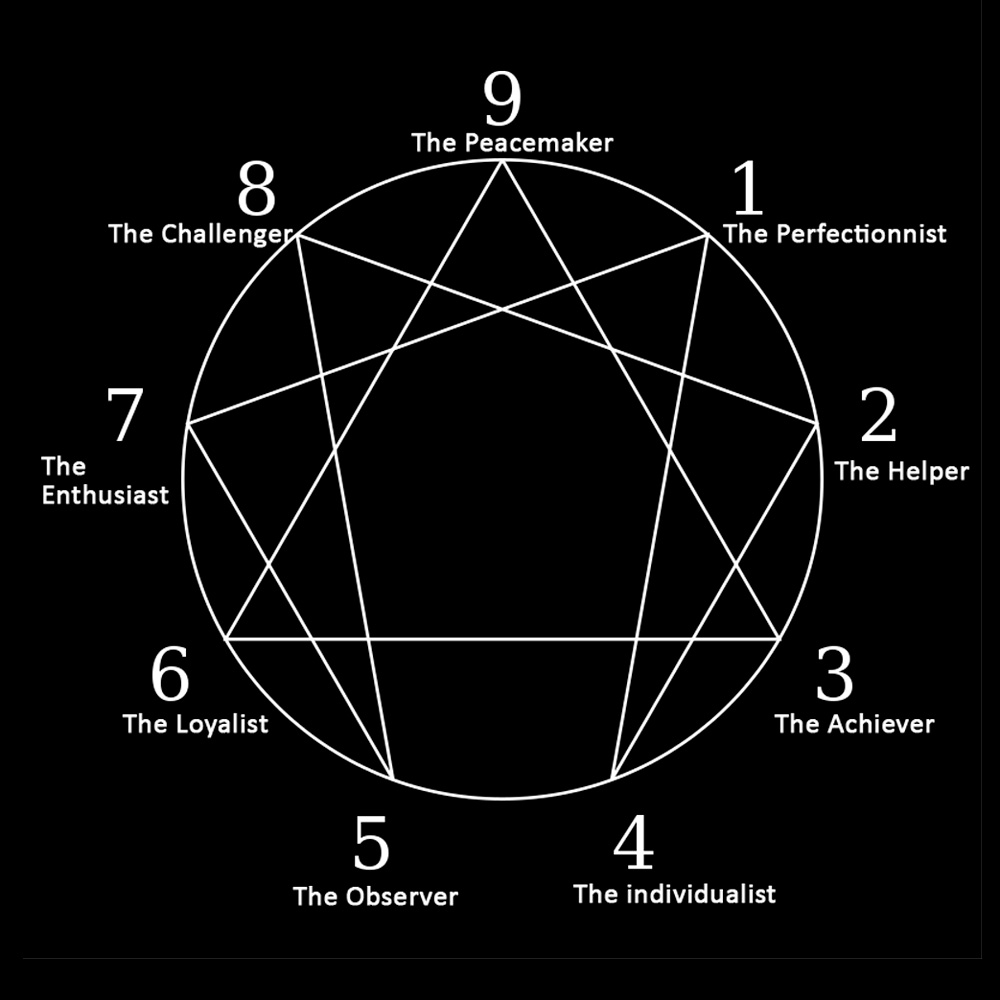
The Enneagram is a personality typology system that identifies nine distinct personality types. Each type is defined by a unique set of internal motivations, fears, and specific behaviors. This system has been used for centuries to help individuals better understand themselves and improve their relationships with others.
The Link Between the Enneagram and Stress Management
Each Enneagram type reacts differently to stress, influenced by their core motivations and fears. For example, a Type 1, the Perfectionist, may feel stressed when perceiving errors or imperfections, while a Type 7, the Enthusiast, may experience stress when feeling restricted or limited in their choices. Understanding these differences can help you identify your primary stressors and adopt strategies to manage them more effectively.
Stress Reactions According to the 9 Enneagram Personality Types
Type 1: The Perfectionist
Stress Reaction: Perfectionists set high standards for themselves and can be highly critical of both themselves and others under pressure. They fear making mistakes and have a strong need for control to avoid imperfection.
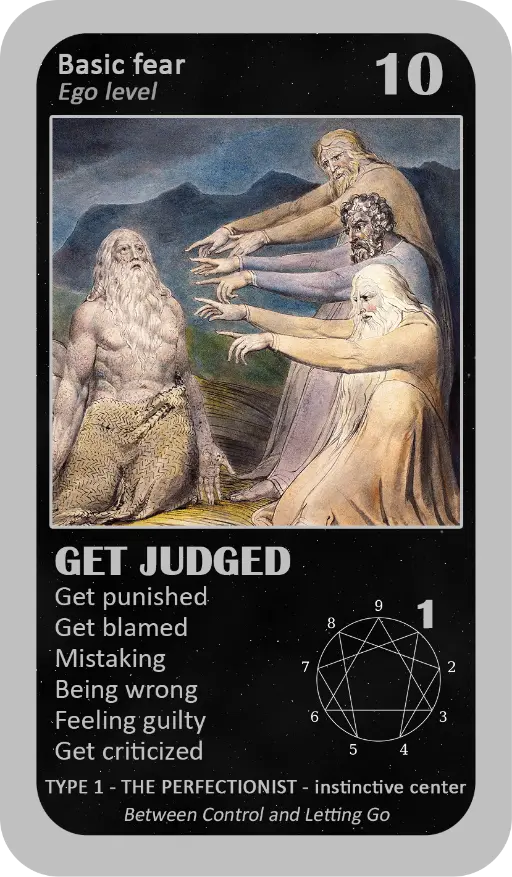
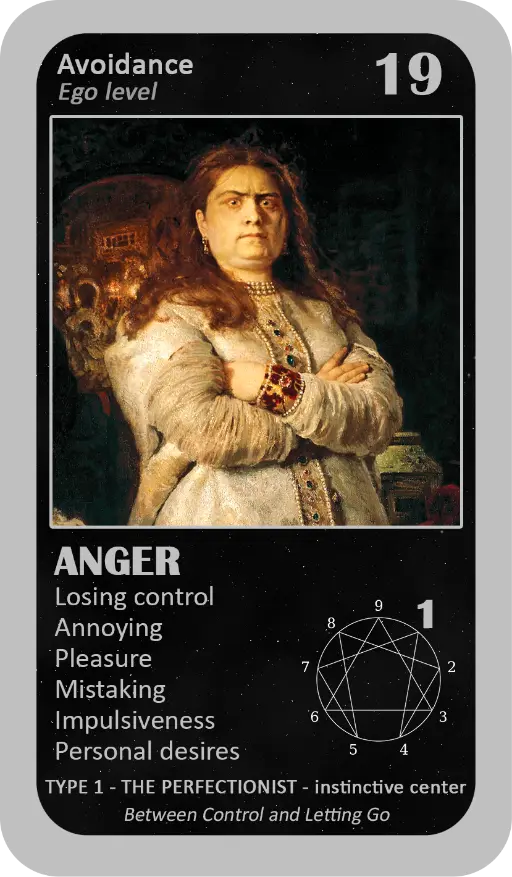
Stress Triggers:
- Facing injustice or disorder
- Being criticized or not meeting their own high standards
- Perceiving errors or imperfections in their work or environment
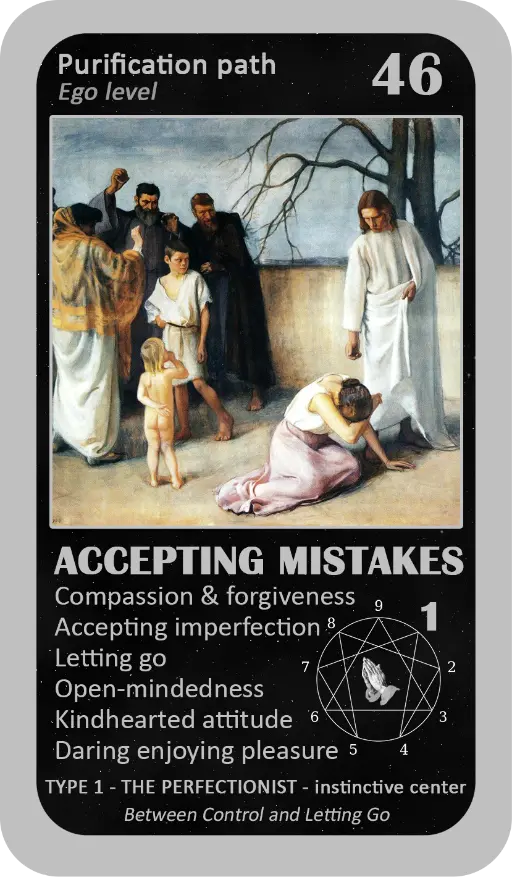
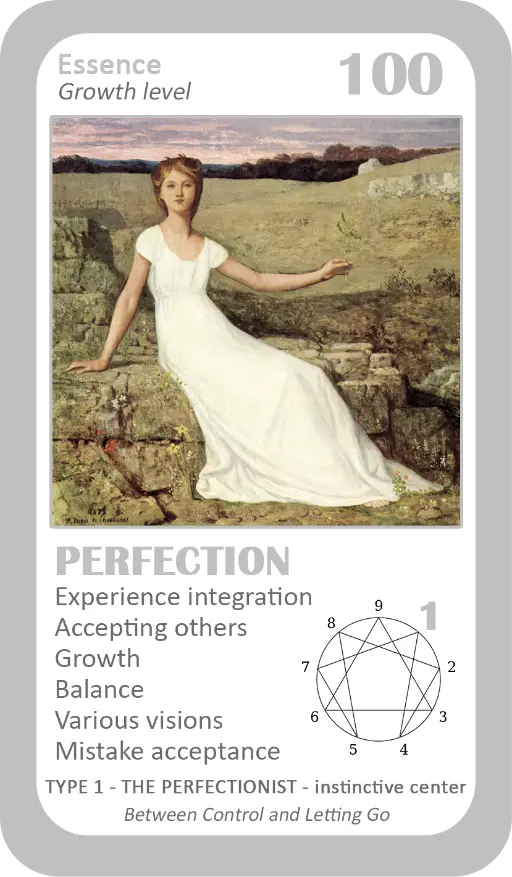
Stress Managmeent Strategies:
- Learn to release some control and accept that not everything can be perfect
- Practice self-compassion and recognize their efforts instead of focusing solely on outcomes
- Engage in relaxation activities like meditation or yoga to promote letting go
Type 2: The Helper
Stress Reaction: Helpers focus intensely on the needs of others, sometimes neglecting their own. Under stress, they may become dependent on others’ validation and feel stressed when they feel unappreciated or overlooked.
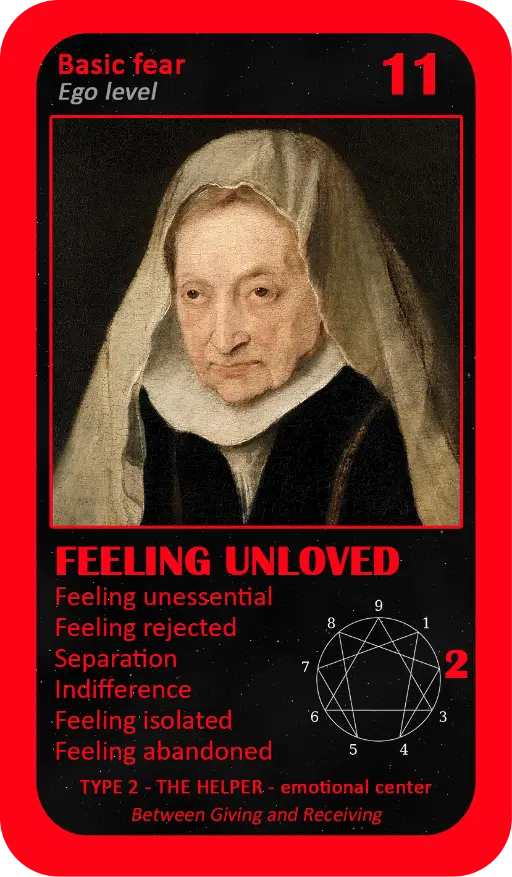
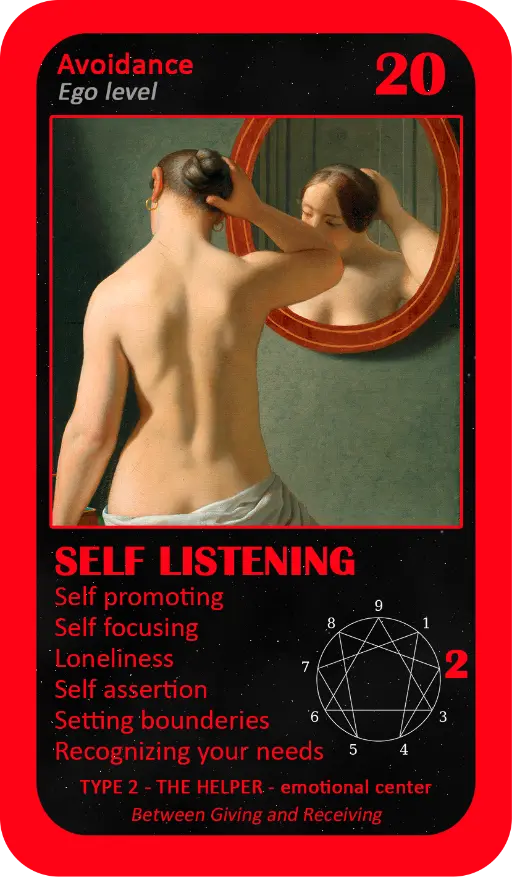
Stress Triggers:
- Feeling unnecessary, unloved, or unappreciated
- Ignoring their own needs to focus on others
- Facing relational conflicts, criticism, or loneliness
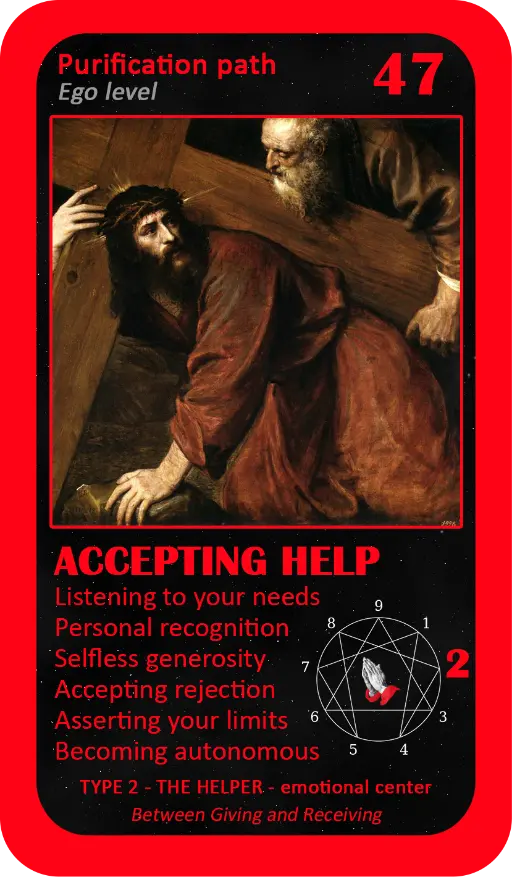
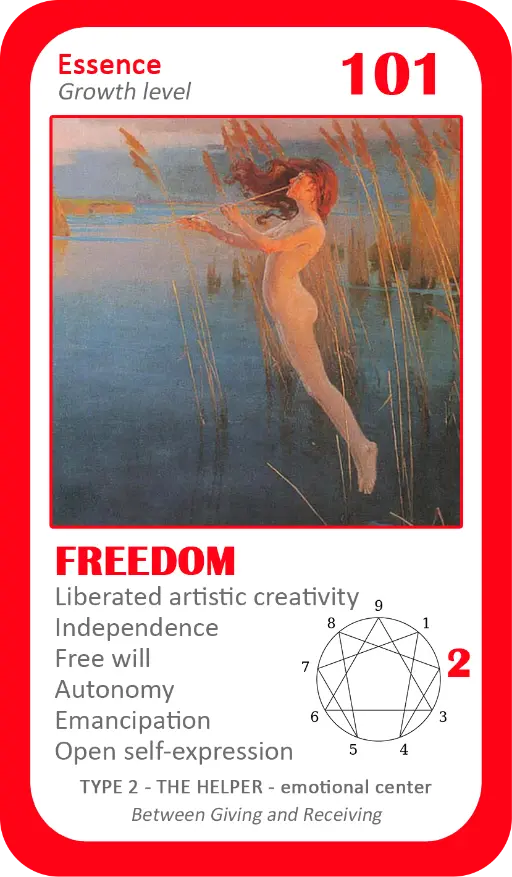
Stress Managmeent Strategies:
- Learn to identify and express their own needs without guilt
- Set healthy boundaries to avoid emotional exhaustion
- Engage in self-care activities that reconnect them with themselves, such as taking time for hobbies or moments of solitude
Type 3: The Achiever
Stress Reaction: Achievers are motivated by success and accomplishment. Under pressure, they may become hyper-focused on their public image and status, often neglecting their emotional needs in the process.
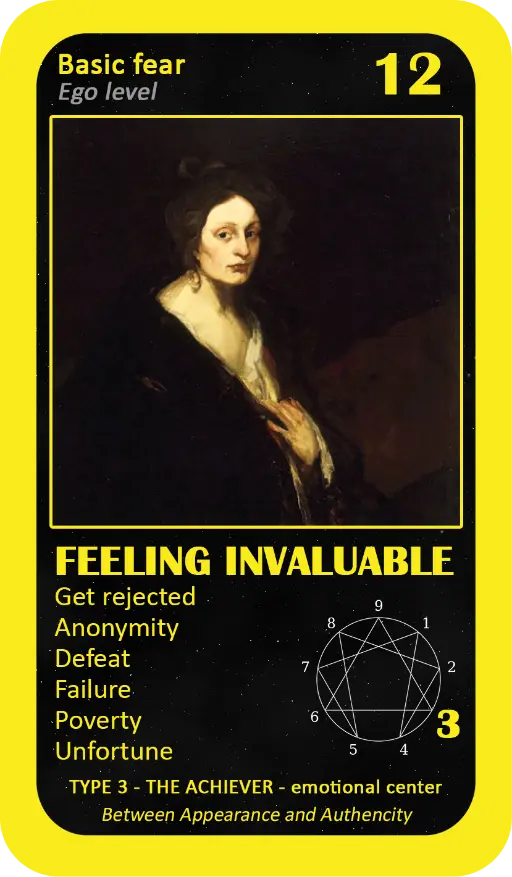
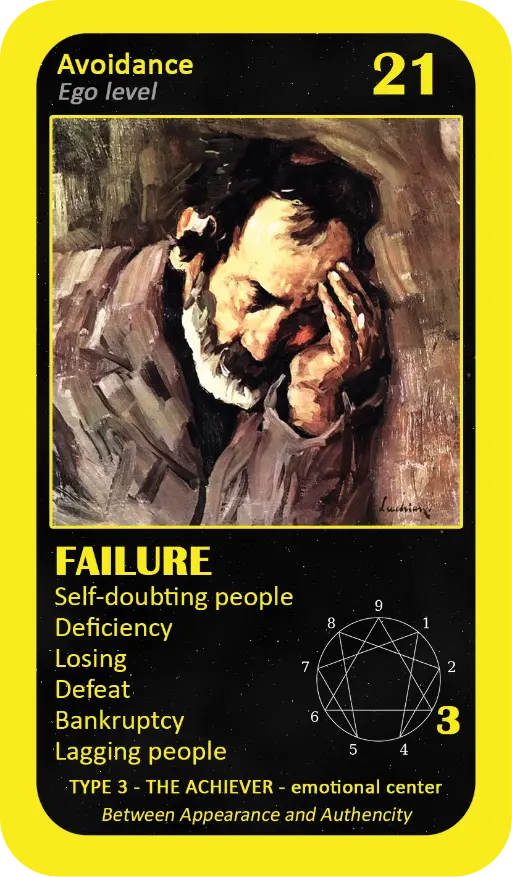
Stress Triggers:
- Fear of failure or not achieving their goals
- Feeling worthless or unrecognized for their accomplishments
- Constant pressure to maintain a successful image
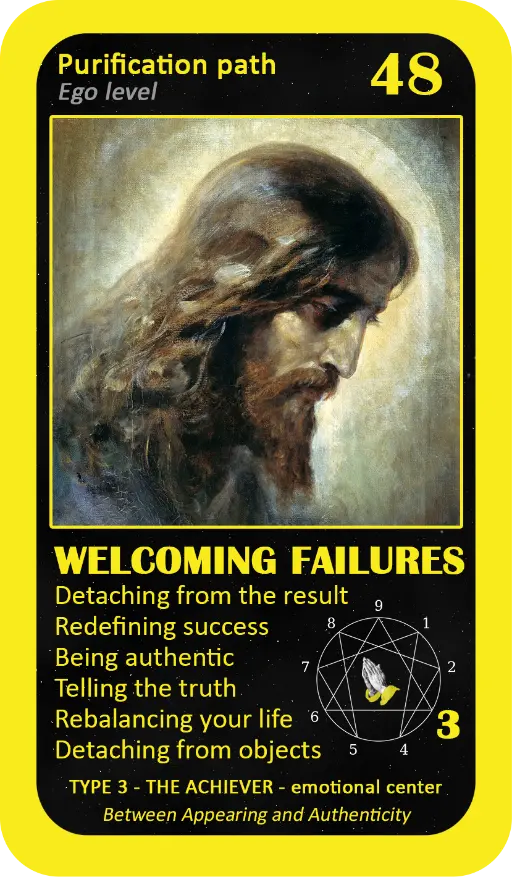
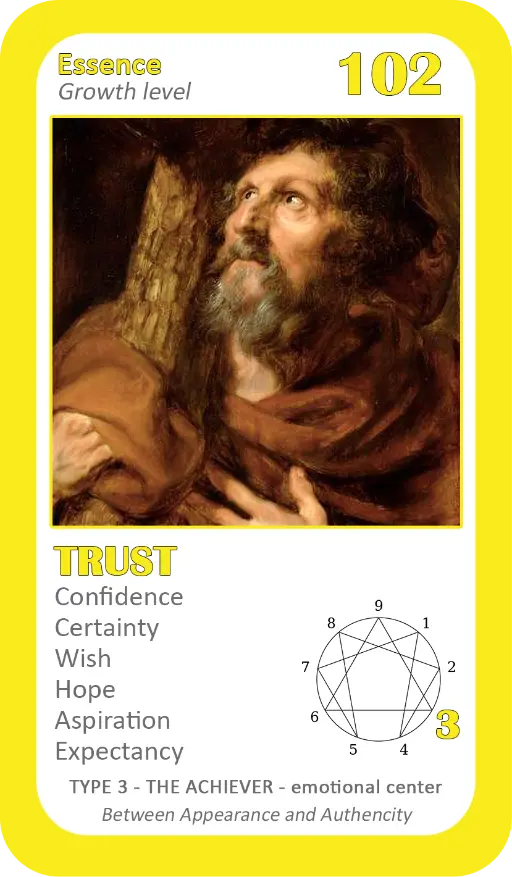
Stress Managmeent Strategies:
- Take a step back to assess their successes and failures more holistically, focusing on personal growth rather than external validation
- Learn to value relationships and quiet moments as much as professional achievements
- Engage in activities that nourish their inner self, like personal coaching or personal development retreats
Type 4: The Individualist
Stress Reaction: Individualists are deeply emotional and seek to express their uniqueness. Under stress, they may become overly introspective, feel misunderstood, or succumb to melancholy.

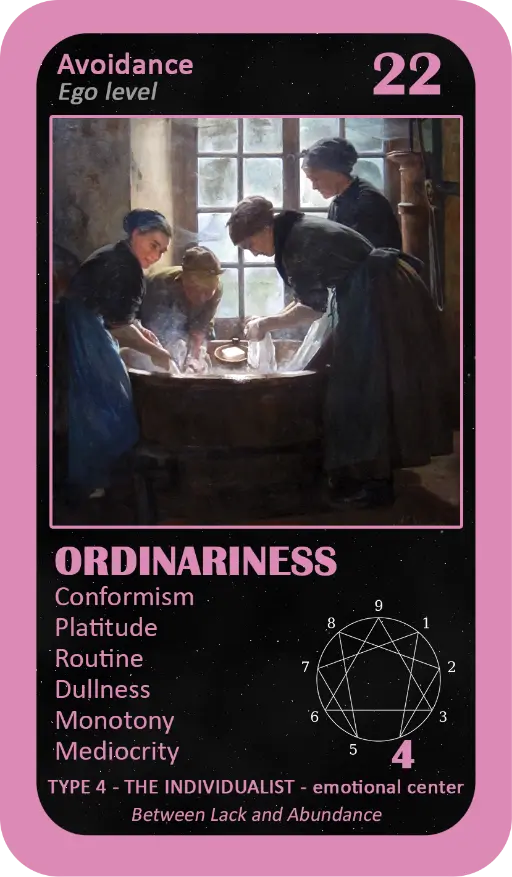
Stress Triggers:
- Feeling misunderstood or marginalized
- Struggling with envy or comparison with others
- Feeling empty or unidentified, lacking a sense of identity, or direction in life

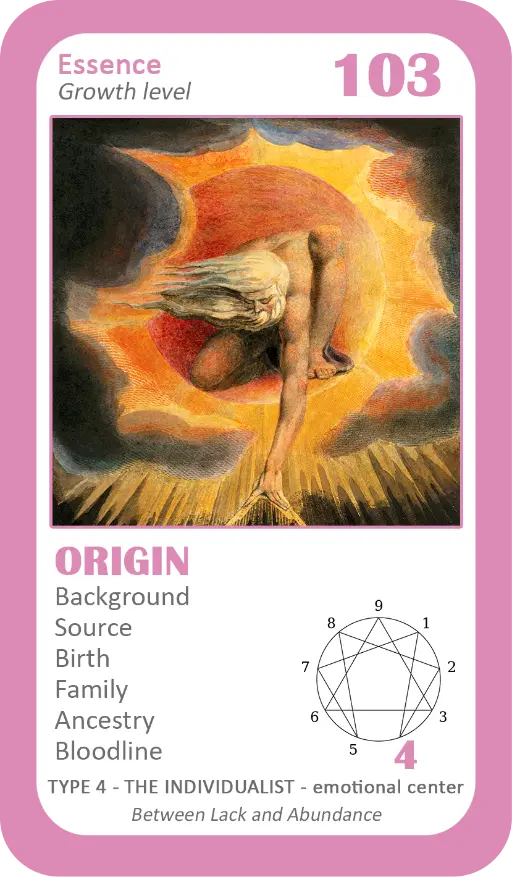
Stress Managmeent Strategies:
- Practice gratitude for what they have and avoid comparing themselves to others
- Engage in creative activities that allow them to express their emotions healthily
- Cultivate relationships where they feel seen and accepted for who they are
Type 5: The Observer
Stress Reaction: Observers prefer to withdraw and analyze situations from a distance. Under pressure, they may become detached, hoard knowledge without acting, or withdraw socially to conserve energy.
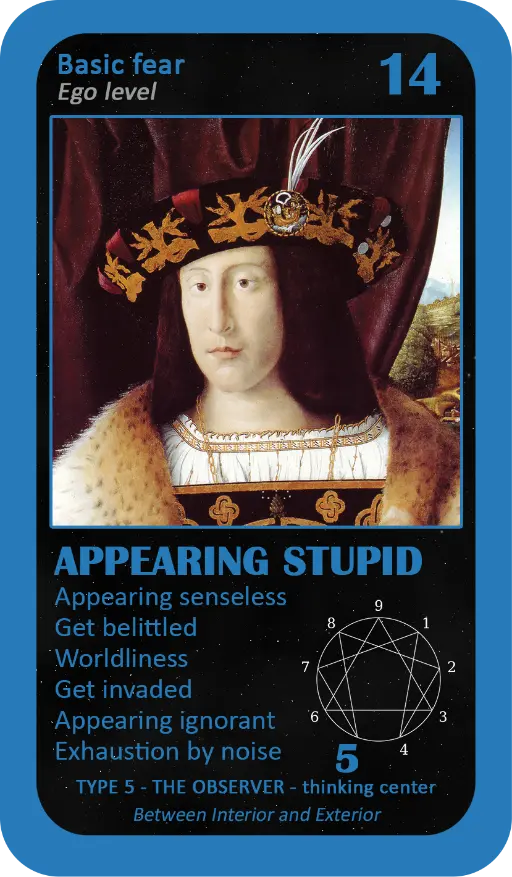
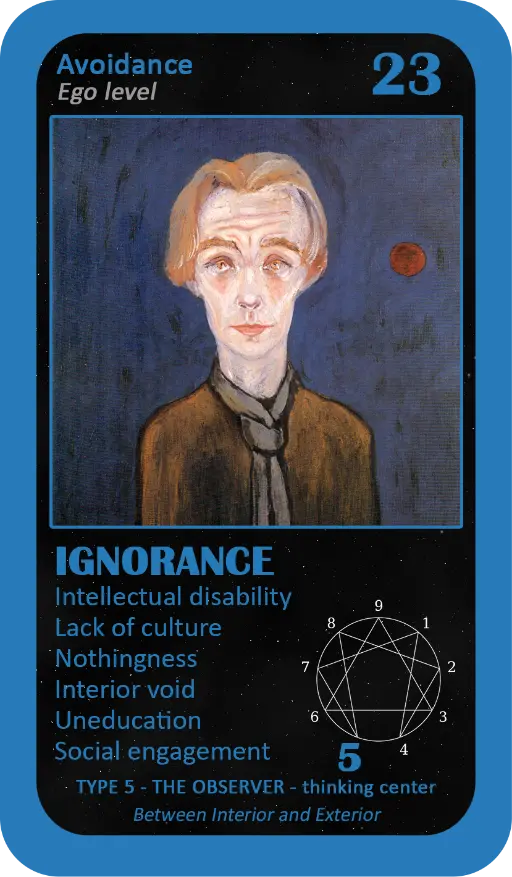
Stress Triggers:
- Feeling overwhelmed or having too many external demands
- Lack of time or space for personal reflection
- Fear of incompetence, ignorance, or being unprepared
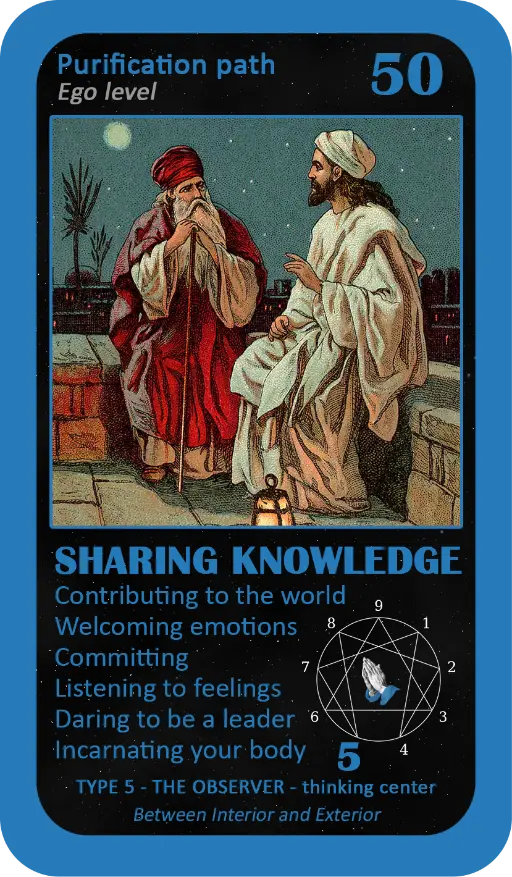
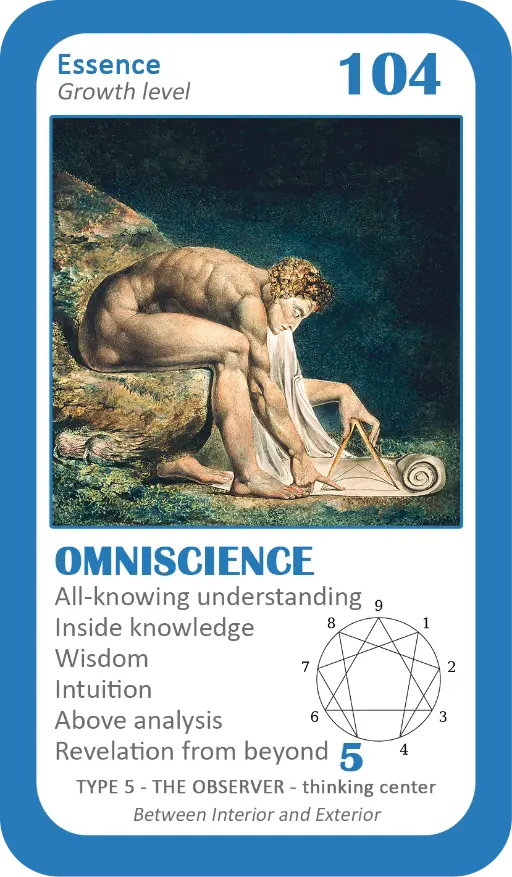
Stress Managmeent Strategies:
- Take time to recharge with solitary activities that soothe them, like reading or meditating
- Learn to balance theory with action by gradually engaging in projects
- Develop relationships where they can express their thoughts without feeling judged
The Enneagram Oracle
Did you like the cards above? They are part of the Enneagram Oracle.
Would you like to know more about this Oracle? All the info is there!
Type 6: The Loyalist
Stress Reaction: Loyalists are oriented towards security and foresight. Under stress, they may become anxious, distrustful of others, or spiral into catastrophic thinking.
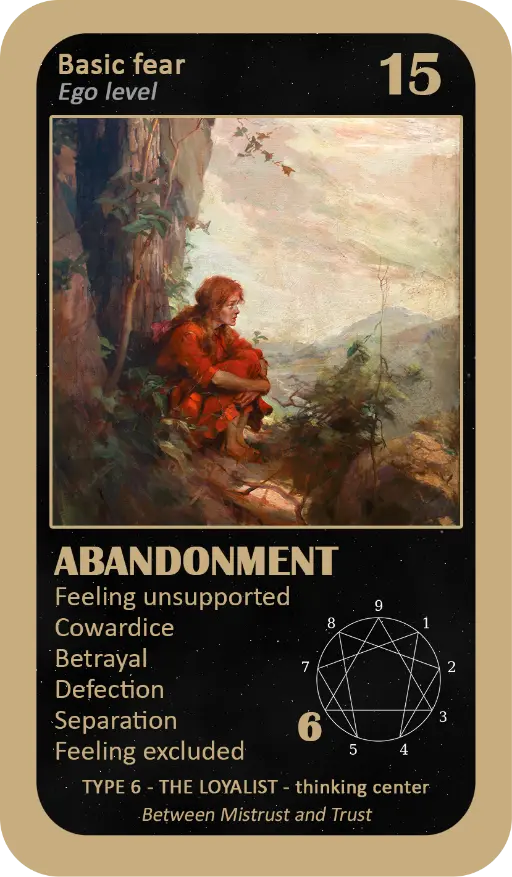
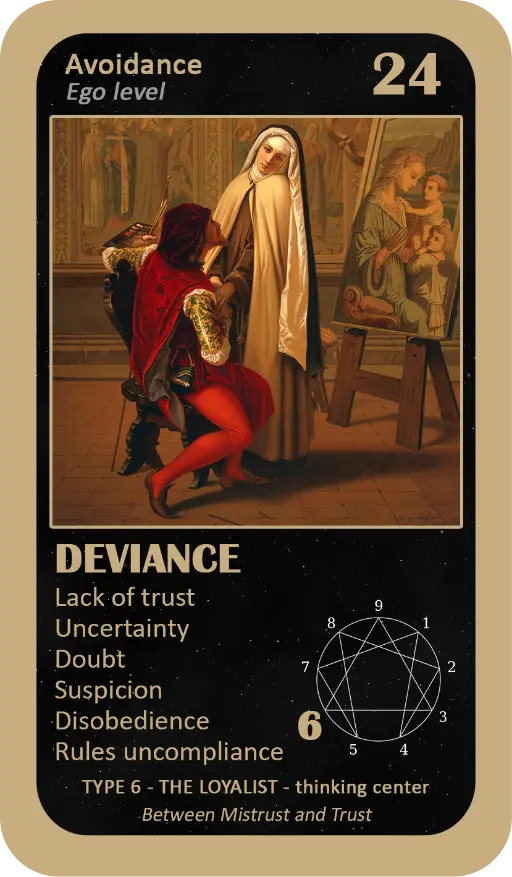
Stress Triggers:
- Uncertainty or unpredictability in their environment
- Perceived lack of support or security
- Feeling of abandonment or betrayal
- Interpersonal conflicts or tensions
- not being able to respect the rules
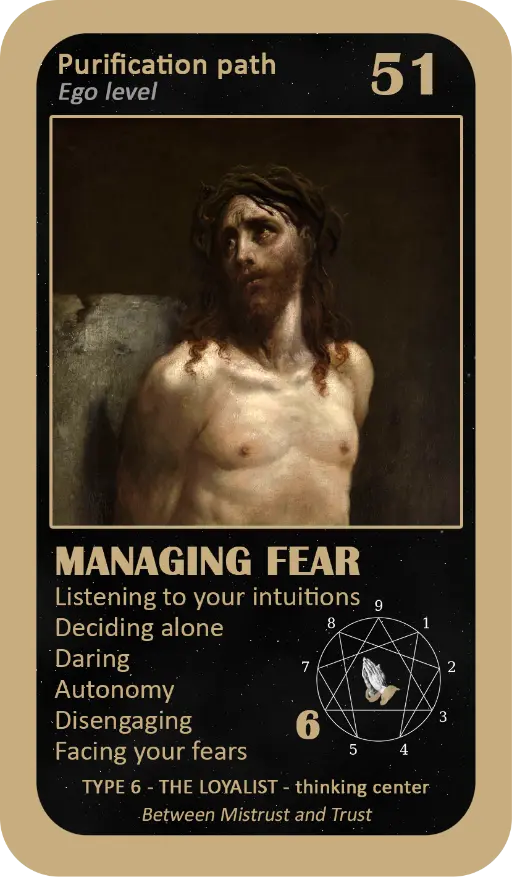
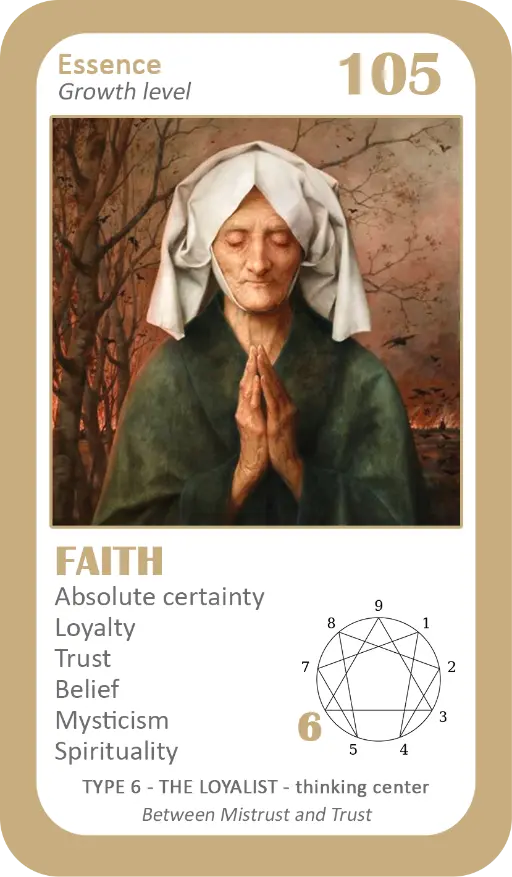
Stress Managmeent Strategies:
- Create routines and contingency plans to feel secure
- Practice anxiety management techniques like deep breathing or positive visualization
- Surround themselves with reliable and supportive people to ease their concerns
Type 7: The Enthusiast
Stress Reaction: Enthusiasts constantly seek new and exciting experiences to avoid pain. Under stress, they may become scattered, impulsive, or try to escape difficult situations by diving into new adventures.
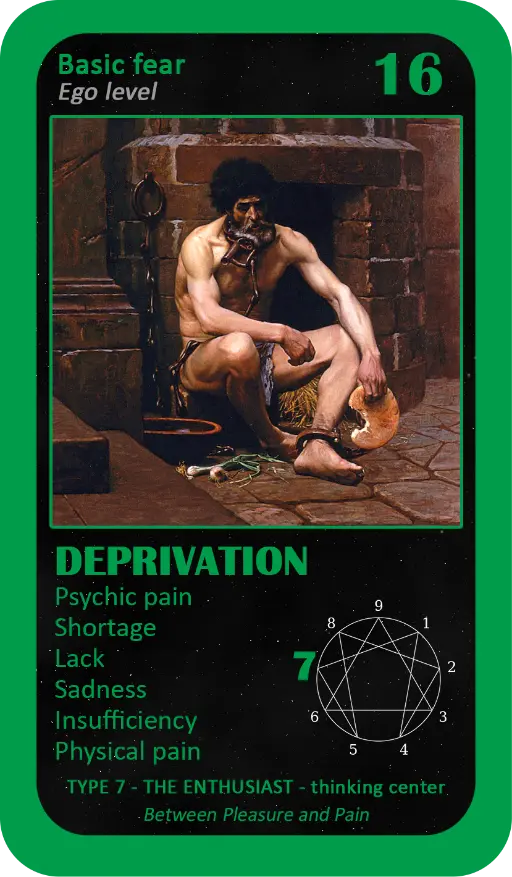
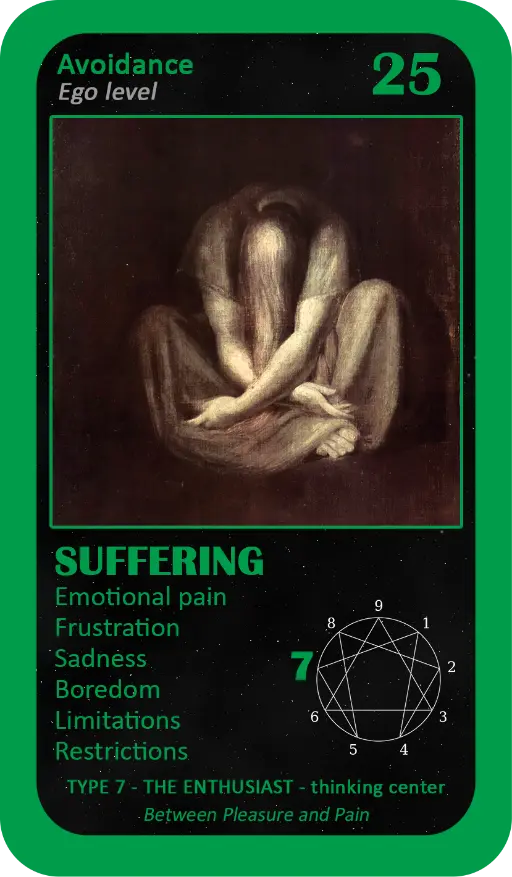
Stress Triggers:
- Feeling trapped or limited in their choices
- Boredom or monotony in their daily life
- Confrontation with negative emotions they prefer to avoid
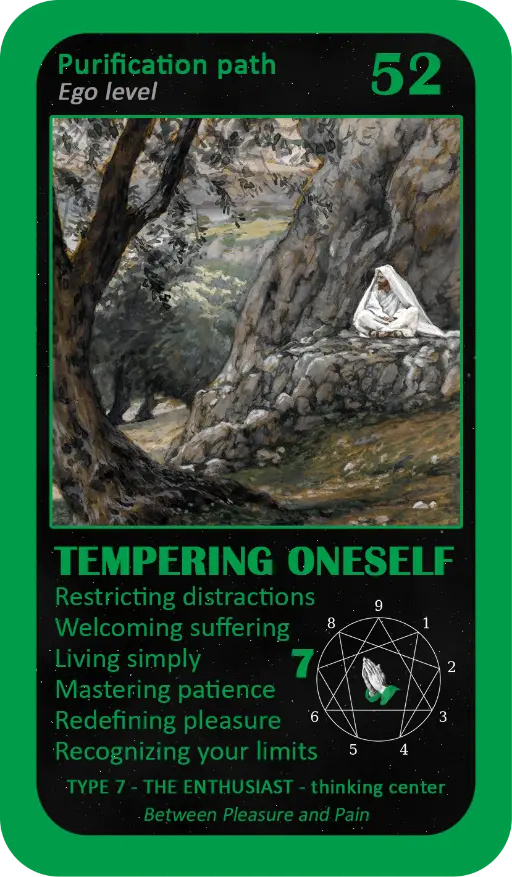
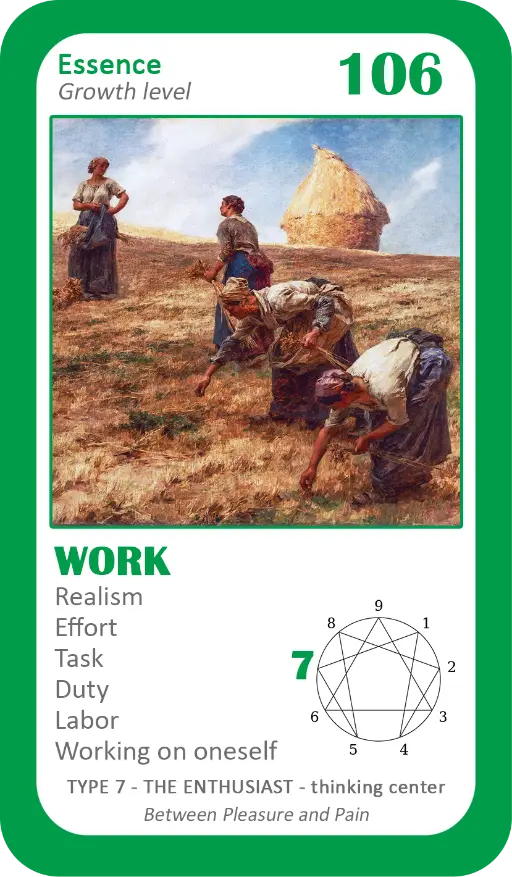
Stress Managmeent Strategies:
- Learn to accept and process difficult emotions rather than fleeing from them
- Cultivate patience and discipline to finish what they start
- Practice mindfulness to appreciate the present moment without always seeking the next adventure
Type 8: The Challenger
Stress Reaction: Challengers are assertive and often take control of situations. Under stress, they may become dominant, authoritarian, or seek to impose their will at all costs.
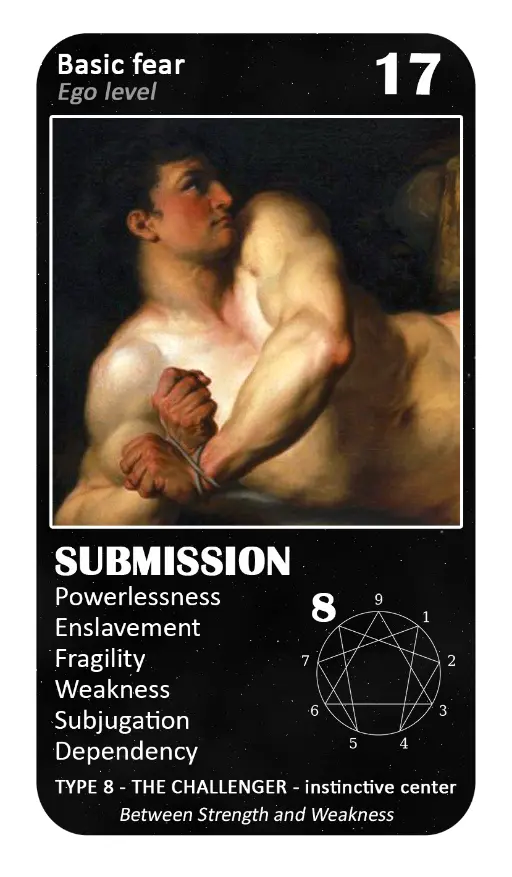
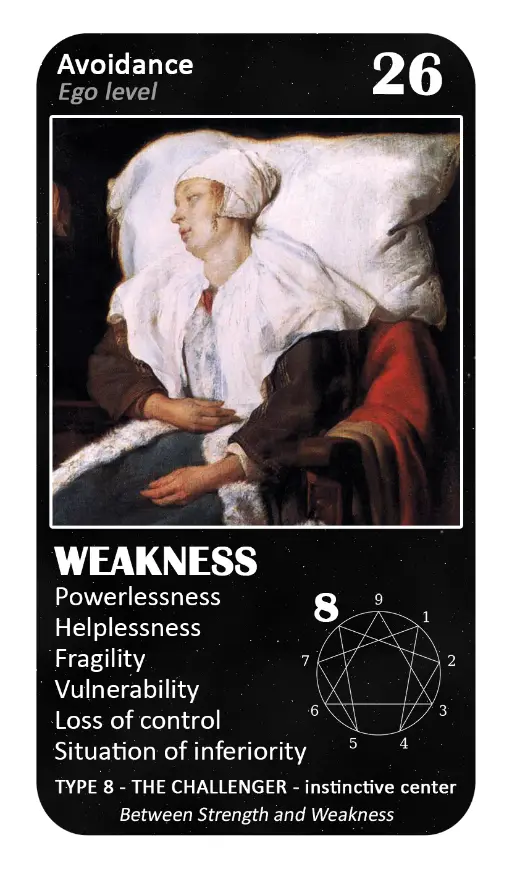
Stress Triggers:
- Feeling vulnerable, weak, or out of control
- Power conflicts or unjust situations
- Feeling that their loved ones are unprotected or in danger
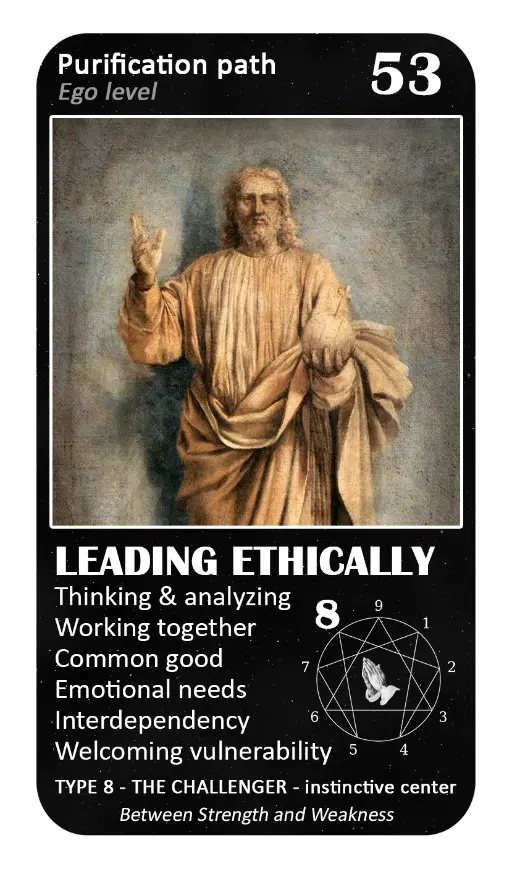
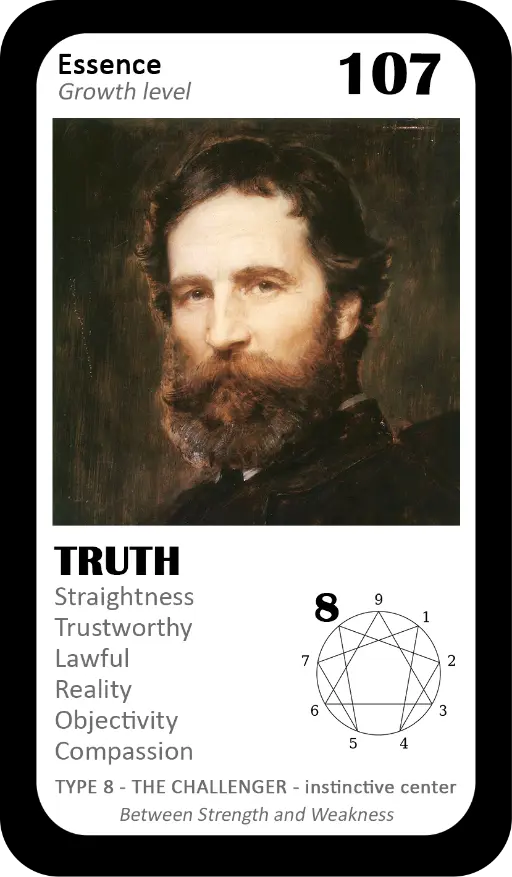
Stress Managmeent Strategies:
- Practice empathy and active listening to understand others’ perspectives without imposing their will
- Learn to collaborate, delegate, and trust others to share the burden of responsibilities
- Engage in physical or sports activities to channel their energy positively
Type 9: The Peacemaker
Stress Reaction: Peacemakers seek harmony and peace. Under stress, they may become passive, avoid conflicts at all costs, or sink into inertia to escape tensions.
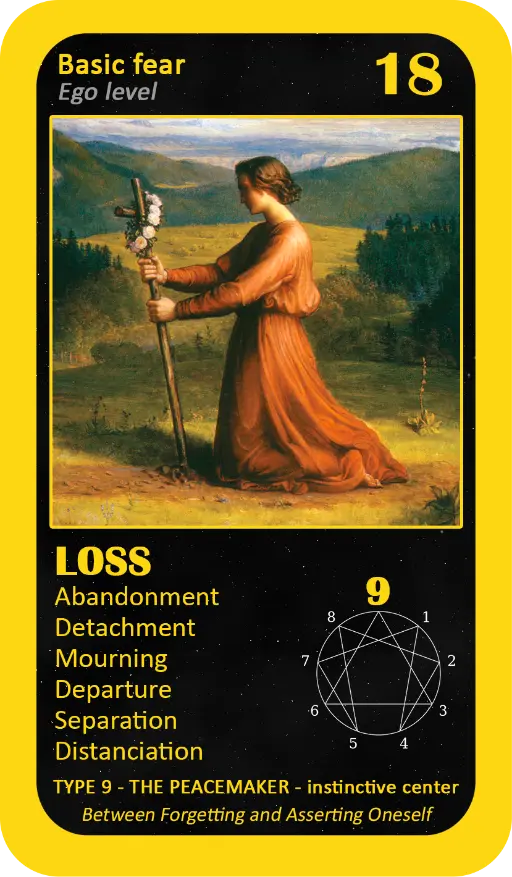
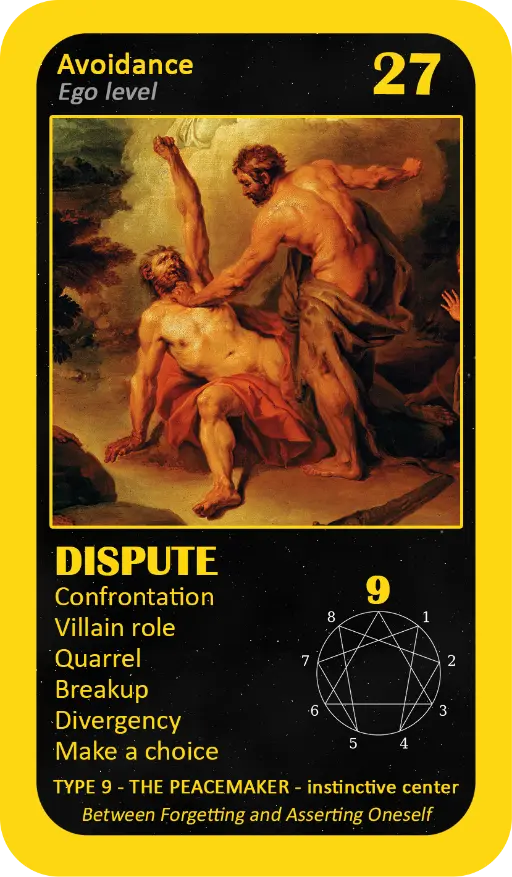
Stress Triggers:
- Interpersonal conflicts, disputes or tensions
- Feeling ignored or underestimated
- Pressure to make difficult decisions or take action
- Any loss or separation
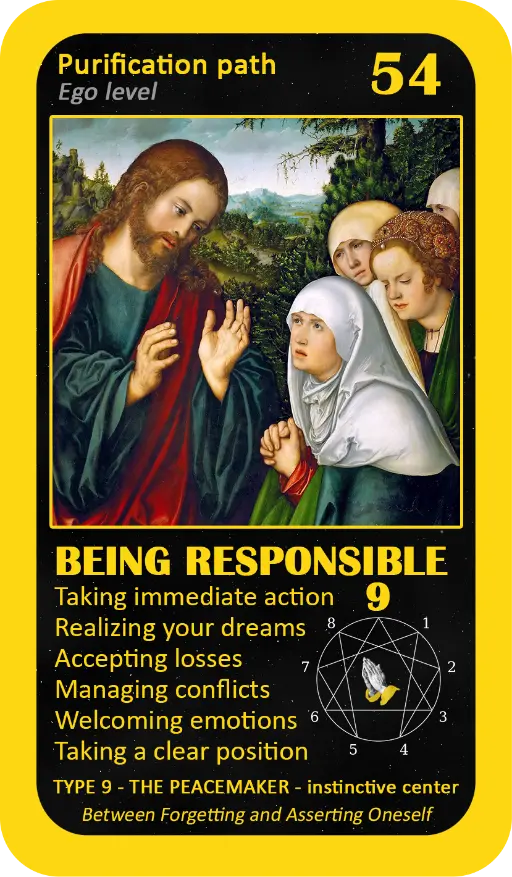
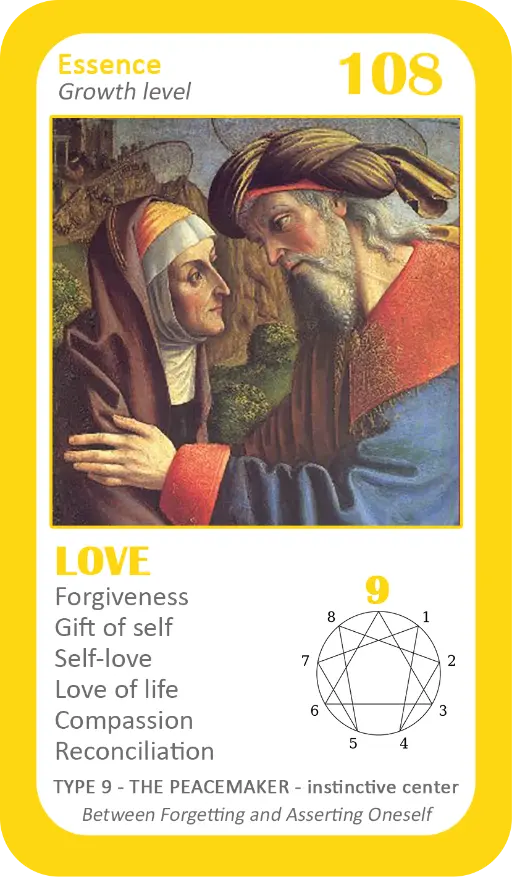
Stress Managmeent Strategies:
- Learn to face conflicts constructively rather than avoiding them
- Practice assertiveness to express their needs and desires
- Engage in activities that connect them to their body, like yoga or walking, to recent themselves
The Mystical Enneagram Oracle
Did you like the cards above? They are part of The Mystical Enneagram Oracle.
Would you like to know more about this Oracle? All the info is there!
How to Use the Enneagram to Reduce Stress in Your Daily Life
Recognize the Signs of Stress

The first step in managing stress is recognizing the signs specific to your Enneagram type. This may include behaviors such as avoidance, hyperactivity, aggression, or anxiety. Being aware of these signs allows you to intervene more quickly to prevent stress escalation.
Adapt Your Stress Management Strategies to Your Type

Each personality type requires stress management strategies tailored to their specific needs. For example, a Type 2 may benefit from techniques that promote autonomy and assertiveness, while a Type 5 may need solitude to recharge.
Practice Mindfulness and Self-Compassion

Mindfulness and self-compassion are powerful tools for all Enneagram types. By being present with your emotions and treating yourself with kindness, you can reduce stress and improve your overall well-being.
Conclusion: The Enneagram as a Guide for Better Stress Management
The Enneagram offers a unique perspective on stress management by revealing the deep motivations and behavioral patterns of each personality type. By understanding your Enneagram type, you can not only identify your stress triggers but also adopt personalized strategies to better manage pressure.
Ultimately, the Enneagram is a tool for personal growth that allows you to better understand yourself and improve your quality of life. By integrating this knowledge into your daily routine, you can face challenges with greater serenity and resilience.
-----
This article was written using artificial intelligence and has been verified, checked and edited by Elena. Did it help you better understand the Enneagram? Please share your thoughts or ask questions in the comments. If you would like to learn more about the Enneagram, check out Elena’s self-published Enneagram Oracles, or download Elena’s free e-book “Introduction to the Enneagram.”









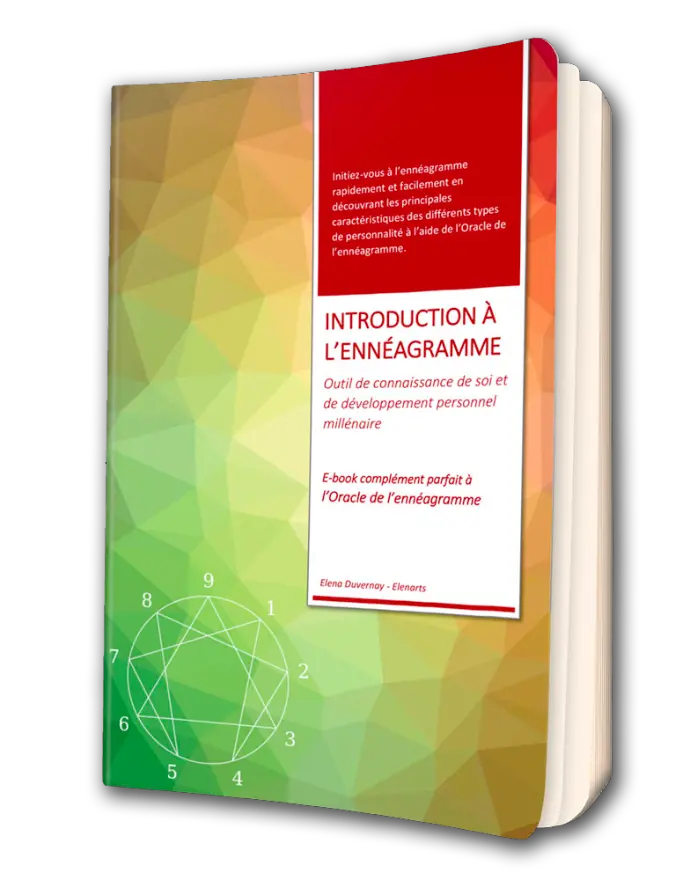
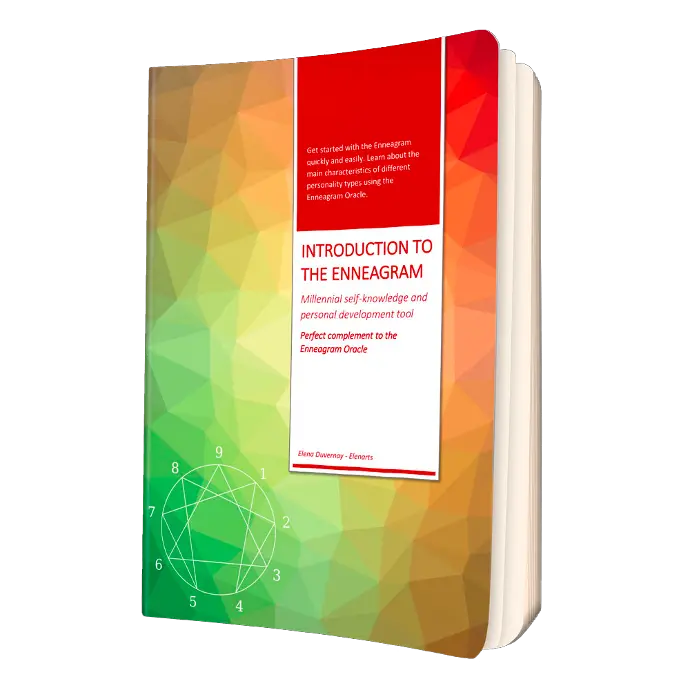

The Enneagram and Stress Management: Understand Your Type to Better Handle Pressure